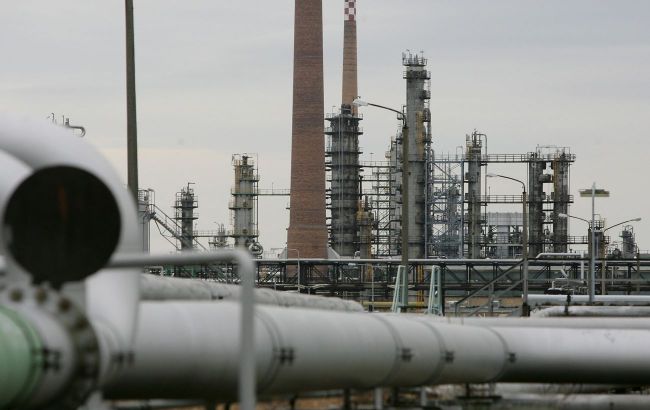Czechia increases oil imports from Russia, its share is the highest since 2012
 Czechia has started buying more Russian oil (Photo: Getty Images)
Czechia has started buying more Russian oil (Photo: Getty Images)
Barbora Putzová, the spokesperson for the state-owned company Mero, has stated that Czechia is increasingly using Russian oil. In the first half of this year, the share of oil imported through the Russian oil pipeline "Druzhba" accounted for approximately 65%, according to České noviny.
Last year, the share of Russian oil in Czechia was about 56%; in previous years, it was even lower.
"Thus, the share of Russian oil is the highest it has been at least since 2012," the material states.
Since last year, there has been an EU ban on importing oil from Russia. However, Czechia made an exception when using the "Druzhba" pipeline.
Mero owns and operates the Czech part of the "Druzhba" pipeline and the IKL pipeline, the sole transporter of crude oil to Czechia.
Oil supplies from Russia via the "Druzhba" pipeline increased
The agency states that the share of Russian oil in the overall import volume has been increasing in recent months. Moreover, Czechia does not seem to be an exception in Europe, as analysts already noted in the summer that EU refineries were trying to secure more oil due to concerns about supply shortages during the transit of raw materials through Ukraine.
Czechia uses oil from two primary sources. One is the "Druzhba" oil pipeline, through which oil from Russia reaches the country. The other part of oil supplies is provided through the IKL pipeline from Germany, which connects to the TAL pipeline from Italy.
The import of oil via the "Druzhba" pipeline has been increasing despite anti-Russian sanctions imposed due to the invasion of Ukraine. A ban on importing Russian oil into the European Union took effect in December last year.
However, the import via the "Druzhba" pipeline, whose southern branch passes through Ukraine to Hungary, Slovakia, and Czechia, while the northern branch goes to Poland and Germany, has been temporarily exempt from the embargo.
Protests against Russian oil purchases in Czechia
"On Sunday, dozens of people protested in Prague in front of the Ministry of Industry and Trade against the high import of Russian oil into Czechia. Protesters demanded that the government motivate Orlen Unipetrol to reduce its oil supplies from Russia," writes České noviny.
However, according to the representative of the Ministry, Vojtěcha Srnky, it is impossible to replace Russian oil imports immediately.
Representatives of the NO Russian Oil initiative stated that during 2023, Czechia imported oil worth 25 billion crowns (almost 1.1 billion dollars), of which seven billion crowns (306 million dollars) were considered unnecessary payments to the Russian budget.
Price cap on Russian oil
Since December 5, 2022, the European Union has imposed an embargo on importing marine oil from Russia. In addition, G7 countries and Australia have implemented a price cap of $60 per barrel for Russian oil.
The price cap prohibits Western companies from providing transportation, insurance, and financing for oil sold above the set limit.
Recently, Eric Van Nostrand, Acting Assistant Secretary for Terrorist Financing and Financial Crimes at the U.S. Department of the Treasury, stated that the price cap on Russian oil imposed by the United States and its allies continues to work, reducing revenue for the Kremlin.


